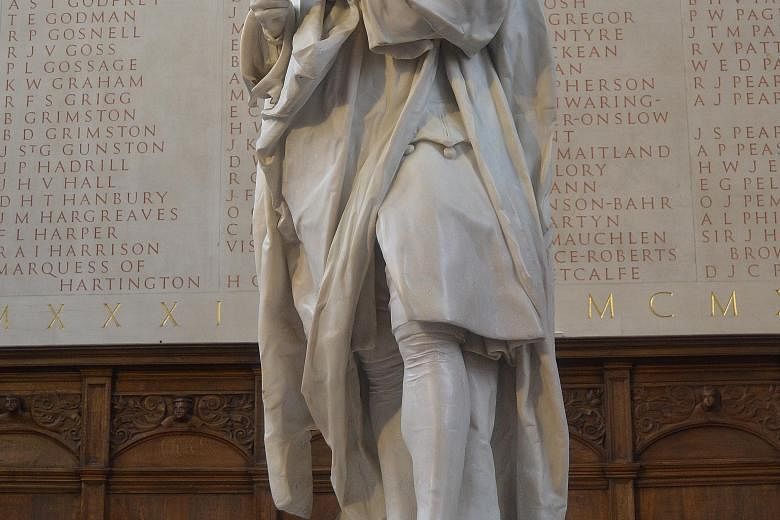Millions of Chinese lost their shirts when the year-long stock market rally in Shanghai suddenly went into reverse gear and crashed by 30 per cent in value in just a matter of weeks in mid-June.
But for some other people, an asset bubble is a great way to make money. In fact, they revel in them.
Take billionaire hedge fund manager George Soros. Although he declared gold to be the "ultimate asset bubble" in January 2010, he built up a £400 million (S$855 million) stake in the precious metal even as its price almost doubled to a record high of US$1,888 an ounce in the next 18 months.
He was nimble enough to pocket a handsome profit by selling most of the stuff well before the gold bubble popped in September the following year, 2011.
But Mr Soros is the exception, rather than the rule. Not everyone can pull off feats of this type of daring. Even extremely clever people have been known to lose a big fortune by failing to get out of a bubble before everyone else.
One of them was the great 17th-century British scientist Issac Newton whose breakthroughs on subjects such as gravity, as he saw an apple falling to the ground one day, formed a big part of my undergraduate studies.
What I find remarkable is that Newton's behaviour 300 years ago during a stock market crash was no different from that of an ordinary investor caught during the recent Shanghai market crash or the bursting of the dotcom bubble 15 years ago.
Newton was a victim of what was later known as the South Sea bubble - one of the first recorded stock market crashes in history. In fact, it was this episode that gave rise to the term "bubble".
The physicist and mathematician was an early investor in a business known as the South Sea Company which had been given a monopoly on trade with the Spanish South American colonies by the British government.
Like Mr Soros, he had sold his investment and made a big profit from chalking up huge returns very quickly. But at this point, he parted company with Mr Soros.
As the South Sea Company's share price doubled after he sold his stake, he could not resist the temptation to have another fling. So he re-entered the market when the company's share price was close to its peak.
And, like the rest of us ordinary investors, Newton did not have the heart to take his losses after the bubble burst, selling out only when the price collapsed to well below his purchase price.
In doing so, he lost almost all his life savings of £20,000, equivalent to £3 million in today's terms.
Newton surveyed his losses and ruefully observed: "I can calculate the movements of stars but not the madness of men."
Still, doesn't his behaviour remind us of our own greed and fears as we are confronted with a rocket-like ascent in stock prices, leaving us green with envy when we find our friends and neighbours making big bucks?
Worse, we even have to contend with countless messages from so-called market experts - on Twitter, Facebook, blogs, investment speciality websites and other forms of social media - bragging about their gains and turning stock trading into a competitive sport.
And when we read about the millions made by a savvy investor such as Mr Soros just from the right bet on the market, we are sorely tempted to get rich quickly in a similar way.
While I cannot claim to have been a particularly inspired physics student, I have at least taken Newton's lesson on investments
to heart. The simplest way to avoid losing money in a bubble is to not invest in any asset in which I suspect a bubble may be forming.
Thus I avoided joining the crowd in chasing after each new home launch when the private residential market was red-hot a few years ago.
For those who had snapped up such properties as investments, the current soft rental market must be a source of considerable concern as they get the keys to their new flats and fight with other purchasers to find tenants for their flats.
But, as the example of Newton illustrates, having the discipline to stay out of a bubble is easier said than done. Most people will tell themselves that they would be able "to sell before the bubble bursts" - only to be caught in the fallout.
The remedy?
A friend from a remote village in Eastern Europe sent me an e-mail one week before the Shanghai crash about how taxi drivers in China were hopping on the stock market bandwagon. He had not been keeping track of the financial market and he found the story amusing.
There is a homespun truism that when even cab drivers and hair- dressers start talking about stock prices, then it is time to get out of the market.


